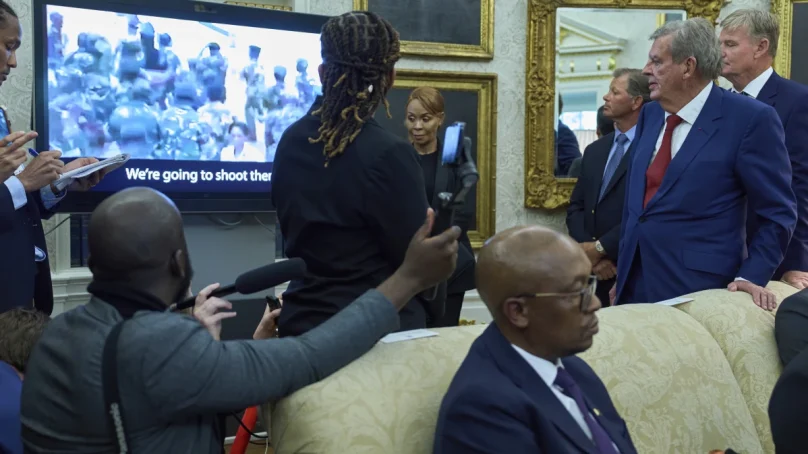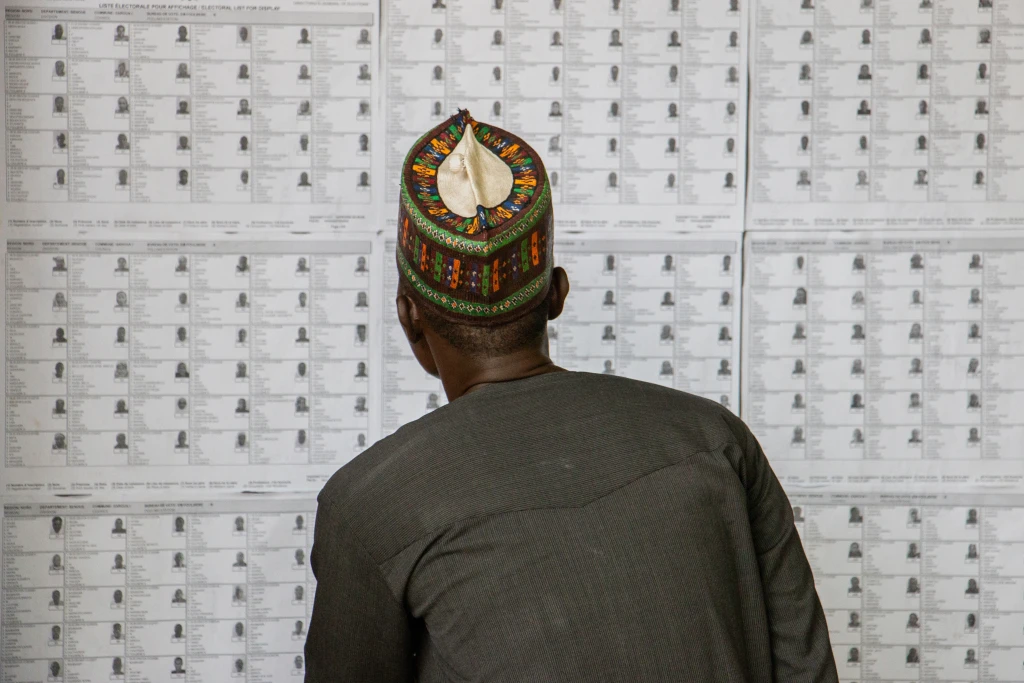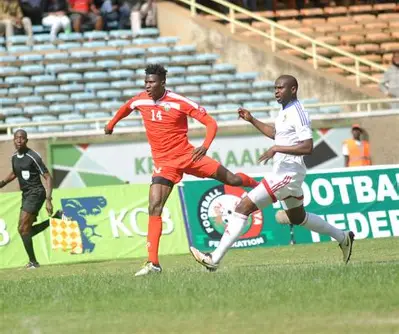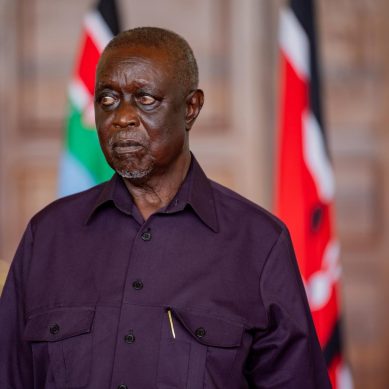
At first, South Africans were furious with the Afrikaner organisations. Trump’s executive order was strongly worded and threatened sanctions.
South Africans across all race groups criticised Kallie Kriel, the CEO of an Afrikaner rights movement called AfriForum, and his deputy Ernst Roets for convincing a foreign government – USA – to collectively punish the entire country over falsehoods. They were accused of peddling lies and disinformation and called traitors, as the nation worried that the US would impose sanctions.
Even AgriSA, a group that specifically represents the interests of farmers and has historically been dominated by Afrikaners, said “claims linking farm murders to the signing of the [Land Expropriation] act are baseless and irresponsible.”
As the anger mounted, AfriForum and Solidarity held a press conference in which they tried to distance themselves from Trump’s order. With his tail between his legs, Kriel backtracked on his claims of a white genocide. He has gone on to turn down Trump’s offer of asylum, insisting he was a patriotic South African who wanted to reaffirm “our commitment, our recommitment, to the country and all its people.”
In the months that have followed, South African’s anger at both Trump and the Afrikaner interest groups seems to have abated. Following the tariff debacle, and Trump’s attacks on American universities, his own public servants, foreign aid, and domestic affirmative-action programs, South Africans have concluded that the US president’s views on South Africa can’t be taken too personally.
Rather than rage against Trump, South Africans have opted to laugh.
Rather than rage against Trump, South Africans have opted to laugh. Trump’s February comment that “terrible things are happening in South Africa” has become the basis of parody skits made by young South Africans – including Afrikaners – who have no interest in aligning themselves with nationalism.
They have shared video clips, captioned “terrible things are happening” of white South Africans dancing and carousing with their Black compatriots, and made skits in which white South Africans speak, direct-to-camera, ironically about their terrible lives, as they record themselves in beautiful homes and are served drinks by Black staff.
The humour points to the fact that racial hierarchies are in place in the country, just not in the ways Trump and his refugees are prepared to admit. Trump’s proximity to wealthy white South Africans – from tech magnates like Elon Musk, his AI czar David Sacks and Peter Thiel, who lived in apartheid South Africa and Namibia as a child, to the golfer Gary Player, with whom he is purportedly close – is notable.
Yet the Afrikaners who landed in DD last week have little in common with Trump and his friends. For one thing, there is no doubt that many of them are struggling financially. To be sure, they are not impoverished or persecuted, and therefore do not warrant the label refugee.
But in the context of a raging US debate about diversity, equity, and inclusion, it is worth pointing out that the new arrivals represent the bottom rung of the Afrikaner socioeconomic ladder: those who have not been able to transition smoothly into post-apartheid South Africa without the protections that white skin privilege would have afforded them a generation ago.
In the absence of formal white supremacy at home, they have opted to take up an offer to be the first beneficiaries of America’s new international affirmative action scheme for white people. They are in America because, despite the head start of inherited privilege, being white is no longer the sole guarantee of a good life in South Africa.
That they should experience their loss of privilege as so catastrophic that they are prepared to label it genocide is absurd, sad, and, to some amongst the political class certainly, infuriating.
As a popular columnist in South Africa has noted, “The white utopia that they believe will greet them is in fact a country at odds with itself as it deals with its own racial tensions and inequality. And one in which they will have neither special protection nor special voice.”
Even President Cyril Ramaphosa, who has a reputation for graciousness and diplomacy, lost his cool, chastising the departed Afrikaners by saying, “As South Africans, we are resilient. We don’t run away from our problems. … When you run away, you are a coward.”
For others, however, the real issue at the heart of the conflict between America and South Africa has nothing to do with the Afrikaners. As EFF founder Malema noted this past week, “Those people know that there’s no white person being killed in South Africa, but they use it to make us change our policies.”
In other words, the claims of white genocide are a pretext for an administration that is keen to pressure South Africa to withdraw its case against Israel at the International Court of Justice – a matter that is specifically named as a point of contention in the executive order.
In true Trump style, the white genocide claims also provide leverage for advancing Musk’s attempt to secure a deal for his satellite internet company Starlink with the South African government. Regulators in South Africa have refused to greenlight the company’s launch until it can bring on-board Black shareholders, as part of a longstanding commitment to affirmative action laws designed to address the painful economic legacy of apartheid.
Since last year’s bruising election campaign that forced the ANC to form a minority government, the nation has struggled to come together. Trump’s executive order has galvanised the country. Whether through laughter, anger or tears, South Africans have been united in their refusal to be strong-armed by an administration that – by weaponising our painful past – has lost the moral authority it once had.
In pillorying Trump’s commitment to the crude racism South Africa walked away from three decades ago, the Afrikaners in America have become a symbol of the country South Africa no longer wants to be.
- A Tell report / Republished from The Intercept







